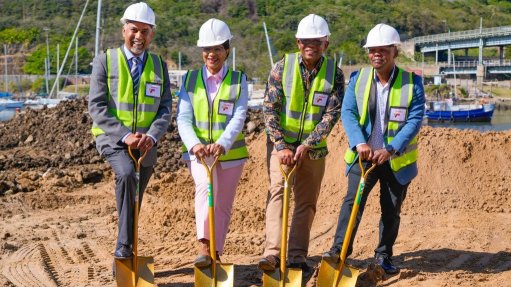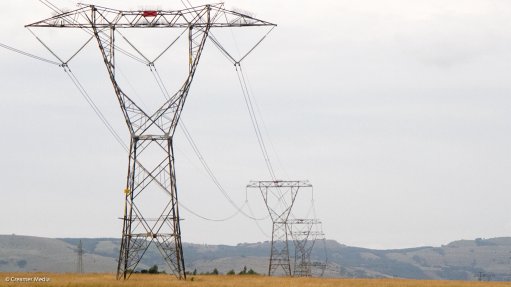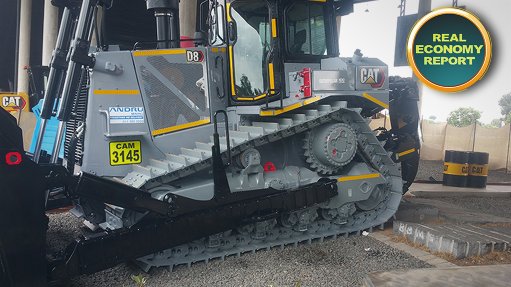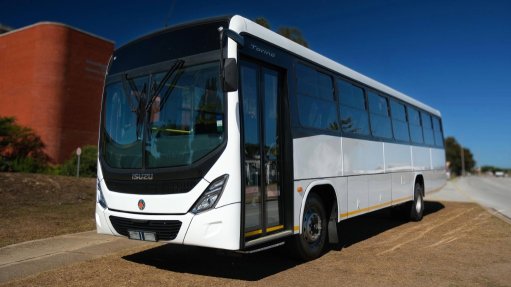Fired up for the energy transition
How extracting value from the old and new burners can fuel the energy revolution
When I was approached for this piece on boilers and burners based on our rich history of combustion projects, I reflected on my current vision. Engineering is a key to converting Africa's rich resources to value for people and the planet. The collective problem-solving brains and passionate hearts of talented like-minded people that want to make a real impact. Our national development plan 2030 opens with a letter. “Our future – make it work.” I believe that boilers and burners have a role to play in our energy transition, there is value in the assets beyond their original value exchange and the talent is local to MAKE IT WORK.
How relevant is this month's topic in our energy journey? Extremely South Africa’s development plan aims to transform its energy landscape, lowering the contribution of coal, introducing gas and renewable energy sources and enabling energy availability and sustainability as well as efficiency investment to foster industry, manufacturing and economic zones.
Major South African industry pioneers are directing their gaze back to South Africa and are speaking on investing with real integrity and agency. The government and private sector are speaking through the lens of partnering and collective opportunity and creativity (and sacrifice). Understanding how important not only the energy source mix is, but also the symbiosis between state, private and local people. Recent furnace-related start-up incidents also reignited the industry to look at safer and more modern combustion and fire and gas detection options. The energy transition is also considering more modular and colocated energy solutions, assisting the downstream industry earmarked for economic growth and job creation. Coal, gas, hydrogen, and biomass are all energy sources that will be developed and directly interact with boilers, heaters, furnaces and burners.
Existing Energy Efficiency
Boilers, heaters and burners will play a pivotal role in brownfield energy improvement projects. Our refining, petrochemicals, steel and other heavy industries are still reliant on heat, and in turn combustion. This heat is currently generated mostly from carbon-based fuels but can have an immediate positive transition impact by just looking at the existing energy efficiency (I address green conversion a bit later). Energy efficiency options in our industry include a myriad of opportunities ranging from replacements down to low CAPEX and OPEX optimisations.
Proconics have been involved across a broad range of these initiatives and have completed cogeneration and heat integration studies for manufacturing industries, while for larger refineries and petrochemicals there are boiler and furnace improvement projects to increase stability, as well as efficiency and air emissions. Energy, water and heat recovery projects have also been completed, while steam turbine optimisations, steam distribution loss avoidance, electrical and control infrastructure modernisation, flare and thermal combustion monitoring have been completed via our drone fleet.
The vast majority of these projects are working to extract the value from existing assets in a smart new way.
New technology and local collated talent that sit with operating entities to plan their unique transitions can change this landscape and is an answer my team and I get excited about. These are proven projects, with much potential to still be unlocked. These retrofits also support local ecosystems of suppliers, supplying hardware, fabrication, construction and maintenance services, which are often overlooked in complete greenfield replacements imported from international suppliers.
Gas as a transitional fuel
Those in tune with our industry media announcements will recognise that gas as a transitional fuel is part of our low carbon plan. Investment in gas feedstocks and consequently coal to gas conversions are already emerging in public and private sectors. LNG import infrastructure, domestic gas development and existing gas networks will bring opportunity to the oil and gas fraternity.
Not only will boilers, furnaces and burners remain extremely relevant in a gas economy, but existing assets can also be converted to gas feedstock where feasible.
The use of gas engines and turbines in stable, energy security and load factor optimisation is also on the rise with Proconics currently working on multiple gas and green energy (including solar and wind) hybrid micro-grids for the industry. Although not the final answer to a zero carbon economy, in the short to medium term, gas to power solutions can dramatically reduce carbon footprint
The Reconfiguration of Heat & Gas to Green
The industrial world is speaking about a hybrid energy mix for a sustainable future from various sectors. South Africa's endowment of clean energy resources, such as solar, will be complemented by many fuel sources to ensure South Africa's low carbon future.
Hydrogen features as a green alternative to existing gas sources, with specific high potential use cases in the heavy industry (petrochemicals, steel, fertiliser). Coal to gas to green hydrogen involves an understanding of the combustion of hazardous gas and will remain relevant, while hydrogen is poised to be the next burner and furnace reconfiguration. South Africa is partnering with industry to develop the hydrogen economy and for South African heavy industry partners like Proconics this brings great excitement. The opportunity of this transition due to the intersection of skills with our existing industry, utilisation of proudly South African licenced technologies and even some asset repurposing shows great promise for the South African low carbon future and the people working in energy.
Article Enquiry
Email Article
Save Article
Feedback
To advertise email advertising@creamermedia.co.za or click here
Comments
Press Office
Announcements
What's On
Subscribe to improve your user experience...
Option 1 (equivalent of R125 a month):
Receive a weekly copy of Creamer Media's Engineering News & Mining Weekly magazine
(print copy for those in South Africa and e-magazine for those outside of South Africa)
Receive daily email newsletters
Access to full search results
Access archive of magazine back copies
Access to Projects in Progress
Access to ONE Research Report of your choice in PDF format
Option 2 (equivalent of R375 a month):
All benefits from Option 1
PLUS
Access to Creamer Media's Research Channel Africa for ALL Research Reports, in PDF format, on various industrial and mining sectors
including Electricity; Water; Energy Transition; Hydrogen; Roads, Rail and Ports; Coal; Gold; Platinum; Battery Metals; etc.
Already a subscriber?
Forgotten your password?
Receive weekly copy of Creamer Media's Engineering News & Mining Weekly magazine (print copy for those in South Africa and e-magazine for those outside of South Africa)
➕
Recieve daily email newsletters
➕
Access to full search results
➕
Access archive of magazine back copies
➕
Access to Projects in Progress
➕
Access to ONE Research Report of your choice in PDF format
RESEARCH CHANNEL AFRICA
R4500 (equivalent of R375 a month)
SUBSCRIBEAll benefits from Option 1
➕
Access to Creamer Media's Research Channel Africa for ALL Research Reports on various industrial and mining sectors, in PDF format, including on:
Electricity
➕
Water
➕
Energy Transition
➕
Hydrogen
➕
Roads, Rail and Ports
➕
Coal
➕
Gold
➕
Platinum
➕
Battery Metals
➕
etc.
Receive all benefits from Option 1 or Option 2 delivered to numerous people at your company
➕
Multiple User names and Passwords for simultaneous log-ins
➕
Intranet integration access to all in your organisation





















